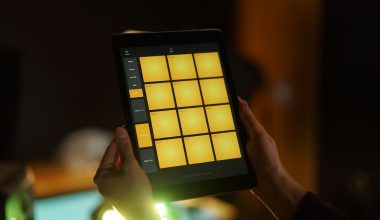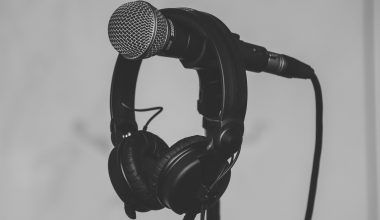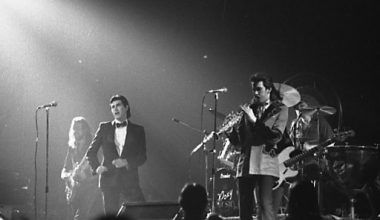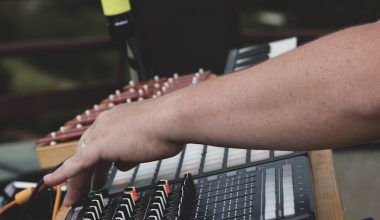Are you dreaming of creating professional-quality vocals from the comfort of your home? A home studio vocal microphone is a crucial piece of equipment that can make or break your recordings. Whether you’re a budding musician, a podcaster, or someone who loves experimenting with sound, having the right microphone is essential. This guide will help you navigate the world of vocal microphones and find the one that suits your needs perfectly.
Why the Right Home Studio Vocal Microphone Matters
When you’re recording vocals at home, the microphone is your voice’s best friend. It captures every detail of your performance, from subtle nuances to powerful crescendos. But not all microphones are created equal. Using a subpar mic can result in poor sound quality, muffled tones, or excessive background noise. This is why investing in the best home studio vocal microphone is key to achieving professional results.
A good microphone doesn’t just capture sound; it enhances it. The right mic will bring out the warmth and clarity in your voice, making your recordings sound polished and professional.
Understanding Microphone Types for Home Studios
Before diving into specific recommendations, it’s important to understand the different types of microphones available. Each type has its strengths and weaknesses, so choosing the right one depends on your needs.
Dynamic Microphones
Dynamic microphones are robust and versatile. They’re great for live performances and can handle high sound pressure levels. However, they may lack the sensitivity required for capturing detailed vocal recordings in a home studio.
Condenser Microphones
Condenser microphones are the go-to choice for home studio setups. They’re highly sensitive and capture a wide range of frequencies, making them ideal for vocals. They require phantom power to operate, which most audio interfaces provide.
Ribbon Microphones
Ribbon microphones offer a warm, vintage sound and are often used in professional studios. While they’re not as common in home studios, they can be a great choice if you’re looking for a specific tonal quality.
Key Features to Look for in a Home Studio Vocal Microphone
Choosing the right home studio vocal microphone involves more than just picking a popular brand. Here are some important features to consider:
Frequency Response
The frequency response of a microphone determines how it captures different tones. For vocal recordings, a flat or tailored frequency response that enhances midrange and high frequencies is ideal.
Polar Patterns
Polar patterns determine how a microphone picks up sound. Cardioid patterns are most common for vocals as they capture sound from the front while rejecting noise from the sides and rear.
Sensitivity
The sensitivity of a microphone affects how well it picks up quiet sounds. Higher sensitivity is usually better for studio vocals, but it can also capture unwanted background noise.
Build Quality
A sturdy build ensures your microphone will last for years. Look for durable materials and a shock-resistant design to protect against accidental drops.
Setting Up Your Home Studio for Vocal Recording
Your microphone is only one piece of the puzzle. The way you set up your home studio can significantly impact the quality of your recordings.
Acoustic Treatment
Acoustic treatment is essential to reduce unwanted echoes and noise. Foam panels, bass traps, and diffusers can help create a balanced recording environment.
Pop Filters and Shock Mounts
Pop filters reduce plosive sounds (like “P” and “B” sounds) that can distort your recordings. Shock mounts minimize vibrations that might travel through your microphone stand.
Audio Interface
An audio interface connects your microphone to your computer and converts analog signals into digital. It’s a must-have for any home studio setup.
Microphone Placement
Proper placement ensures optimal sound capture. Position your microphone at mouth level and maintain a consistent distance of about 6-12 inches.
Top Home Studio Vocal Microphone Recommendations
Choosing the right microphone can be overwhelming with so many options available. Here are some top picks to get you started:
- Shure SM7B: A versatile dynamic mic that’s loved by podcasters and vocalists alike.
- Audio-Technica AT2020: A budget-friendly condenser mic with excellent sound quality.
- Neumann TLM 103: A premium choice for professional-quality recordings.
- Rode NT1-A: Known for its low noise and crystal-clear sound.
Tips for Getting the Best Sound from Your Microphone
Even the best microphone won’t deliver great results if you don’t use it properly. Here are some tips to maximize your recordings:
- Always warm up your voice before recording to avoid strain.
- Use a pop filter to keep your vocals clean and free from plosives.
- Experiment with microphone placement to find the sweet spot for your voice.
- Record in a quiet space to minimize background noise.
Conclusion
Choosing the perfect home studio vocal microphone is a journey that requires a bit of research and experimentation. By understanding your needs and exploring different options, you’ll find a mic that helps you create amazing vocal recordings. Remember, your microphone is an investment in your creativity. Take the time to make the right choice, and your recordings will thank you for it!
For further reading, explore these related articles:
- How Long by Charlie Puth Lyrics: A Journey of Emotions
- Everything You Need to Know About Taylor Swift’s New Album
For additional resources on music marketing and distribution, visit DMT Records Pvt. Ltd..






